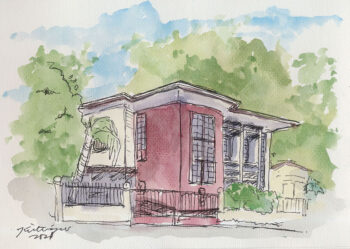CAGAYAN DE ORO CITY (MindaNews/26 April)—Remember Dr. Jose Rizal’s essay on “The Indolence of the Filipino?” It confronted the prejudice of Spanish colonials towards Filipinos (whom they called indios) as lazy, lacking in initiative, unreliable, fit only for menial labor and not worth full compensation.
Knowing the true character of Filipinos and their oppressed condition as subjects of an imperious regime, Rizal explained that the alleged laziness of Pinoys was in fact a reflection of their resentment against indignity and maltreatment.
Over three hundred years of indignity and abuse, he explained, created resentment in the hearts and minds of Filipinos—inducing in them an uncooperative attitude towards the colonial regime and a distaste for officious Spaniards who exploited the country’s resources for their own purposes.
Not only that, appearing to be “indolent” disguised their non-cooperation. It was a defense mechanism as well as an offensive reaction against insulting treatment.
Ultimately, it was a form of defiance, a protest against cruelty and oppression. Laziness wasn’t what made Pinoys unwilling to work or to serve the colonials. It was revulsion at the thought of working for basically nothing.
*****
The colonials actually thought they could just demand obedience, tribute, or pro bono service! It didn’t occur to them that no one in his right mind, native or alien, would work for free, earn nothing for livelihood, and let his family starve in the process!
It didn’t help that the government also adopted a policy of compulsory labor from the citizens. Everyone except the privileged classes was required to contribute their labor for the construction of public works projects—without compensation!
It was inevitable therefore that the Pinoys were reluctant to offer their services unless coerced. And when forced to serve, they did so in an improper way.
Intentional bad service was their way of expressing criticism and defiance at the way they were treated. In that context, poor workmanship was also a way of exacting revenge.
A doctor many times over and a keen student of human nature, Rizal knew the Pinoy condition as no one in his generation did. And that’s why his essay on “indolence” is a classic piece of revolutionary writing.
The Castilian overlords overworked and abused the trusting Filipino to the point of killing his will to work, to strive to progress, or even to live. Thus it is understandable that the Filipino would seem to them to be indolent and bereft of resourcefulness.
Ultimately, Rizal rectified the wrong characterization of his fellow countrymen, eloquently presenting their case in the context of colonialism and man’s struggle for dignity and justice.
He showed how Filipinos were second to none as honorable and dignified people, while also exposing the pretentious, elitist, and prejudiced attitudes of the colonial Spaniards.
The context of his other writings also reflected the condition of many colonial societies and made him an iconic figure in the annals of the Malay world—where he is admired to this day.
*****
Thank goodness, we overcame that colonial episode and the cobwebs of prejudice. But the march of civilization never ends and we must ever strive to refine our ways as citizens of an honorable society.
One of the refinements needing our attention and action is civic consciousness. We must address the paradox of our split-level behavior: abroad, we are service-oriented, eager to please, and fastidious OFWs (overseas Filipino workers)—but not in our home country.
While abroad, we are great maintainers of foreigners’ homes, compounds, or communities. But back here, we behave differently.
We neglect the governance and upkeep of our own community/barangay. We leave arrangements to others and don’t even bother to supervise the public servants we elect.
Thus even where our public servants prove to be unruly, corrupt, or inept, no one takes them to task, no one bothers to have them disciplined, or removed and replaced as the law requires.
All this is true at barangay as well as at upper levels, municipal to national. It doesn’t strike anyone that a nation of neglectful citizens can never be truly progressive, or be truly great.
Yet, practically everywhere abroad we we’re used to take care of homes, households, compounds, even entire communities. We make them orderly, neat, and pleasant by giving proper attention to detail, a habit that endears our OFWs everywhere, one that is consistent with orderly, civilized living.
But look around, starting with the Barangay Hall. Hardly do they project a sense of orderly, civilized living.
Why is it so impossible to build and maintain the same standard and sense of elegance here at home as abroad?
In only a very few places do we find well-maintained barangays—and they’re likely to be the privately-owned portion of it. The rest is sloppy, neglected, uncivilized, with squatters practically everywhere.
This is very surprising to alien expatriates who visit or live with us—because it concerns the very spaces we occupy, where we live.
Let’s hold that thought till next time as we explore this thread further. (Manny, among others, is former UNESCO regional director for Asia-Pacific, secretary-general of Southeast Asian Publishers Association, director at Development Academy of Philippines, member of the Permanent Mission to the United Nations, vice chair of Local Government Academy, member of the Cory Government’s Peace Panel, and PPI-UNICEF awardee for outstanding columnist. You may reach him at valdehuesa@gmail.com)







